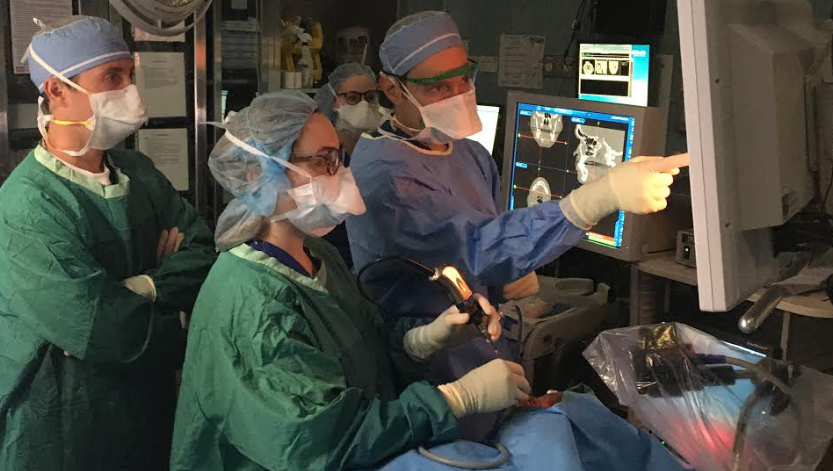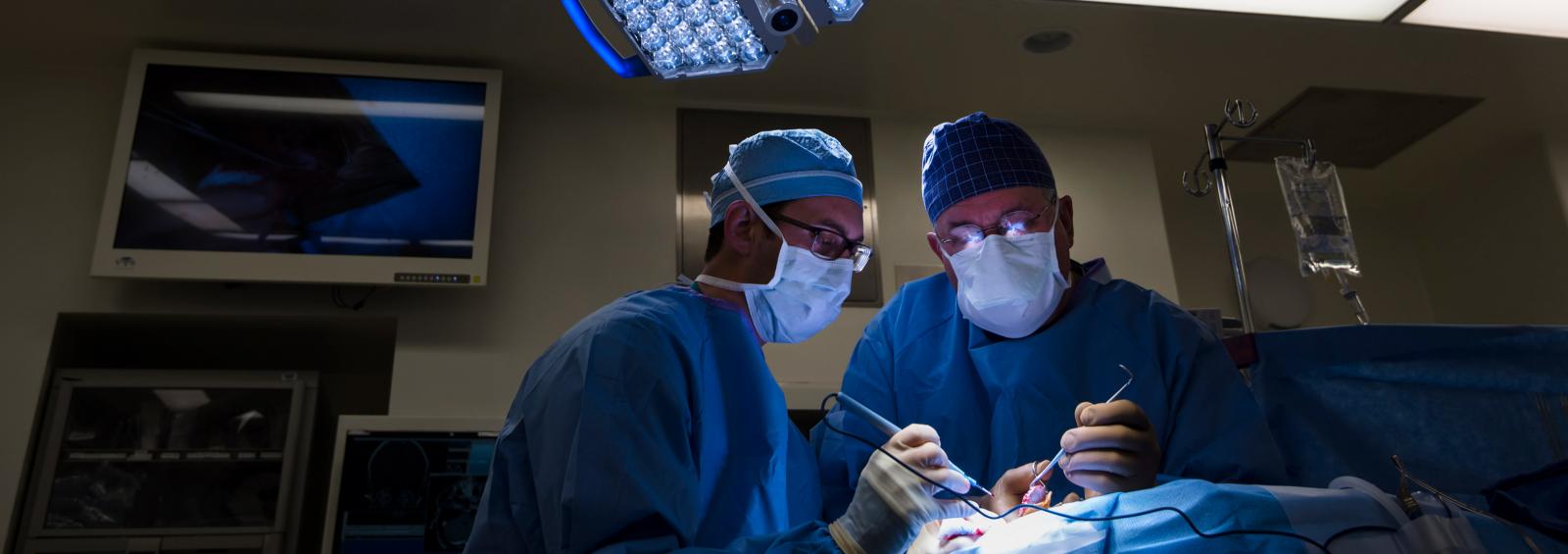Critical Reasons to Visit an ENT Clinic for Ongoing Allergy Symptoms
Critical Reasons to Visit an ENT Clinic for Ongoing Allergy Symptoms
Blog Article
Exploring the Field of Otolaryngology: What to Expect When You Speak With an ENT
Otolaryngology, generally described as ENT, encompasses the diagnosis and therapy of ear, nose, and throat disorders. For those experiencing relevant problems, getting in touch with an ENT specialist can supply quality and alleviation. Comprehending what to anticipate throughout such appointments is vital for efficient interaction and treatment. This review will detail vital aspects of the ENT experience, including usual factors for gos to and the processes associated with medical diagnosis and treatment.

Recognizing Otolaryngology: An Introduction
Otolaryngology, often described as ENT (Nose, throat, and ear) medication, is a customized branch of medication that concentrates on the diagnosis and therapy of problems affecting these important locations of the body. This field incorporates a variety of conditions, consisting of those relevant to hearing, balance, breathing function, and speech. Otolaryngologists are educated to take care of both clinical and medical therapies, making use of advanced techniques and innovations. Their experience extends past traditional disorders, resolving problems such as allergic reactions, sinus infections, and hearing loss. In addition, they play an important duty in the administration of head and neck cancers, providing extensive treatment tailored to specific patient needs. On the whole, otolaryngology continues to be essential for keeping health and lifestyle in affected individuals.
Common Reasons to See an ENT Specialist
Numerous individuals look for the knowledge of an ENT specialist for a selection of factors, showing the varied nature of conditions that impact the nose, throat, and ear. Typical concerns consist of persistent sinusitis, which usually results in persistent nasal congestion and face discomfort. Allergic reactions and their linked symptoms, such as sneezing and itching, likewise trigger visits to these experts (Otolaryngology). Hearing loss, whether sudden or steady, is one more significant reason for assessment. Furthermore, people might look for assessment for throat conditions, consisting of persistent hoarseness or ingesting troubles. Sleep apnea, characterized by interrupted breathing throughout rest, is regularly addressed by ENT professionals also. Each of these conditions highlights the relevance of specialized care in managing complicated ENT-related health problems
Planning for Your ENT Consultation
When preparing for an ENT visit, it is vital to collect appropriate details and consider any type of particular problems. Individuals should put together a thorough medical history, consisting of previous ear, nose, or throat concerns, surgeries, and existing medications. Documenting signs-- such as seriousness, duration, and regularity-- can provide useful understandings for the ENT professional. In addition, individuals must prepare a checklist of inquiries they desire to ask, making certain that all worries are dealt with throughout the go to. Bringing along any type of relevant medical records or test results can better aid the ENT in understanding the patient's condition. Clients need to confirm their consultation details, including place, day, and time, to minimize any type of final complication. Correct preparation can improve the performance of the appointment and bring about much better results.
What to Expect Throughout the Examination
As the consultation starts, the patient can anticipate to participate in a detailed discussion with the ENT expert regarding their symptoms and case history. The professional will ask about the duration, frequency, and extent of signs such as hearing loss, nasal blockage, or aching throat. In addition, the person's previous medical problems, medications, and any pertinent household history will be assessed, assisting the specialist in creating a total understanding of the person's wellness. The ENT may likewise ask about way of life elements, such as exposure to irritants or irritants. This open discussion establishes a foundation for the consultation, making sure that the patient's worries are resolved and establishing the phase for any necessary evaluations or recommendations for therapy.
Diagnostic Tests and Treatments in Otolaryngology
A series of diagnostic examinations and treatments are important in otolaryngology to accurately review and detect conditions impacting the throat, ear, and nose. Typical tests include audiometry, which gauges hearing function, and tympanometry, assessing middle ear stress. Nasal endoscopy enables visualization of the nasal flows and sinuses, while laryngoscopy examines the throat and vocal cords. Imaging techniques, such as CT scans and MRIs, give comprehensive views of head and neck structures. Allergic reaction screening may also be carried out to determine triggers for sinus or respiratory concerns. These diagnostic devices make it possible for ENT professionals to establish a comprehensive understanding of individuals' conditions, making read more certain customized and reliable administration plans. Correct diagnosis is vital for successful treatment outcomes in otolaryngology.
Therapy Choices Used by ENT Specialists
ENT specialists supply a range of therapy options tailored to address specific conditions affecting the nose, throat, and ear. These treatments vary from traditional strategies, such as medicine and way of life adjustments, to even more intrusive procedures. For example, allergies might be managed with antihistamines or immunotherapy, while persistent sinusitis might call for nasal corticosteroids or sinus surgery. For hearing loss, ENT experts typically suggest listening device or medical treatments like cochlear implants. In cases of throat conditions, choices can consist of speech treatment or surgeries to get rid of blockages. In addition, they may give assistance for managing rest apnea, consisting of the usage of CPAP gadgets or medical interventions. Generally, the objective is to boost people' quality of life via personalized care and effective therapy techniques.
When to Look For Follow-Up Treatment With an ENT
Recognizing when to seek follow-up treatment with an ENT specialist is vital for handling ongoing signs and symptoms or problems related to throat, ear, and nose conditions. Clients need to think about arranging a follow-up visit if signs and symptoms continue despite first treatment, such as chronic ear pain, nasal congestion, or throat pain. Modifications in hearing, balance problems, or uncommon nasal discharge might also call for additional evaluation. Furthermore, if an individual experiences side results from recommended drugs or has actually gone through a surgery, follow-up care is very important to keep an eye on recuperation and resolve any type of issues. Prompt examinations can assure effective administration of problems, protect against possible complications, and offer peace of mind concerning one's wellness. Seeking follow-up treatment advertises positive health and wellness management in otolaryngology.
Frequently Asked Concerns

What Credentials Should I Look for in an ENT Professional?
When seeking an ENT expert, one must seek board accreditation, appropriate experience, and strong person reviews. Furthermore, reliable interaction abilities and a thoughtful method can significantly enhance the overall therapy experience.
How Do I Select the Right ENT for My Needs?
Choosing the right ENT specialist entails examining their certifications, experience, and patient reviews (ENT). It is essential to contemplate their communication style and method to therapy, guaranteeing they line up with the individual's particular wellness demands and choices
Exist Any Type Of Threats Connected With ENT Procedures?
The threats linked with ENT procedures might consist of infection, blood loss, anesthetic problems, and possible damage to surrounding structures. Patients must go over these dangers with their doctor to understand specific problems and guarantee educated choices.
How Can I Handle Anxiousness Prior To My ENT Consultation?
To handle stress and anxiety prior to an appointment, individuals can exercise deep breathing workouts, imagine favorable results, prepare questions in breakthrough, and look for support from good friends or household, fostering a sense of confidence and peace.
What Should I Do if I Experience Side Effects From Therapy?
If side results from therapy occur, the person must immediately report them to their doctor. Adjustments to therapy or added treatments might be necessary to ensure safety and security and performance in managing their condition - Otolaryngology. As the assessment starts, the individual can anticipate to engage in an extensive discussion with the ENT professional regarding their symptoms and medical history. These analysis tools allow ENT experts to establish an extensive understanding of patients' problems, making certain customized and effective management plans. ENT professionals offer a variety of treatment options tailored to resolve details problems impacting the throat, nose, and ear. When looking for an ENT specialist, one must look for board qualification, appropriate experience, and strong patient testimonials. Selecting the best ENT professional involves assessing their qualifications, experience, and individual evaluations
Report this page